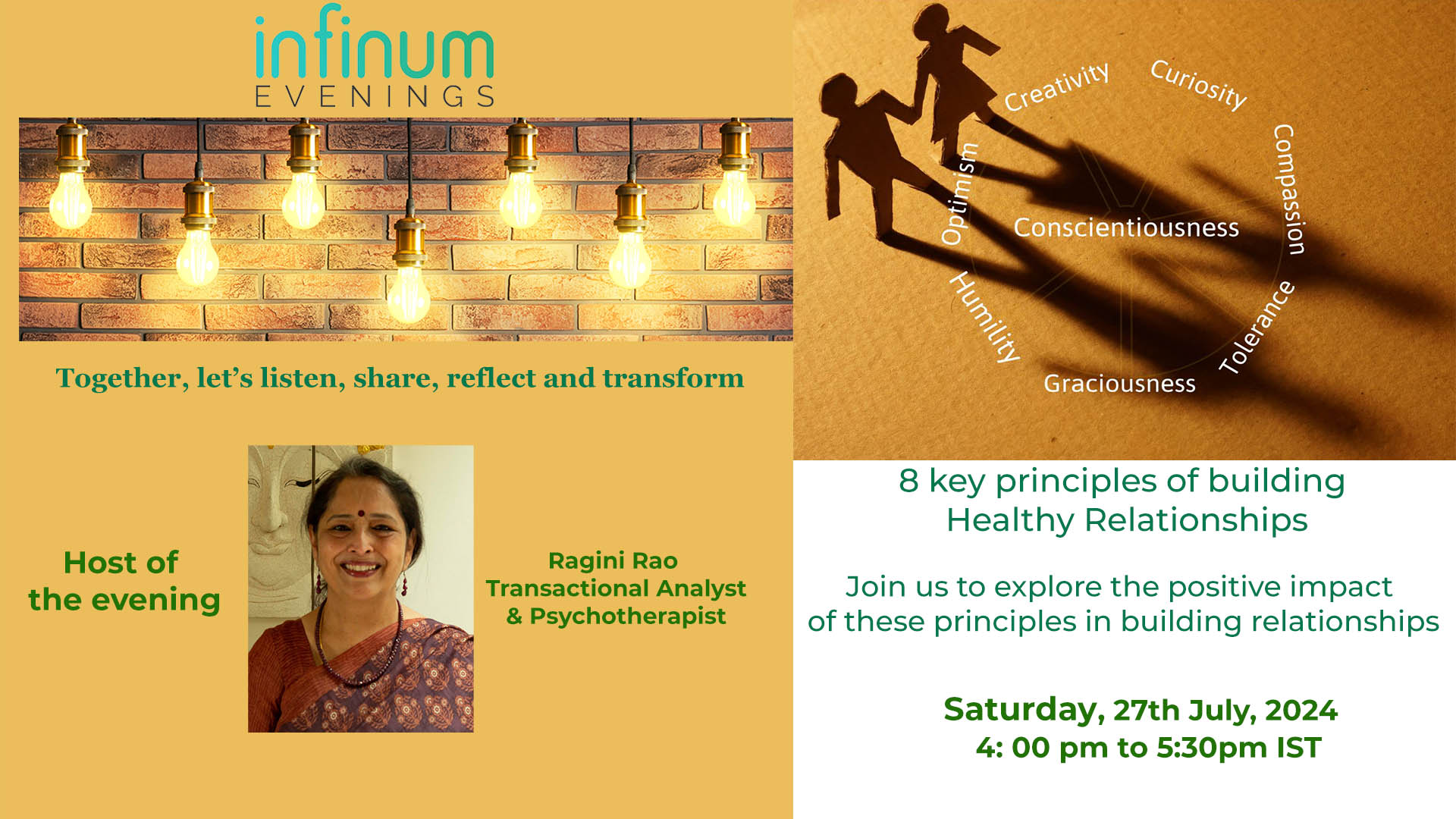All of us go through periods in life when we take that step back to look within and understand ourselves; in order to redefine the way forward in life. I have personally done this a few times. Two of the most impactful experiences were (1) Psychotherapy and (2) Vipassana.
In a recent Vipassana experience, I went for a 10-day retreat at the end of March, 2023. In this article I compare my experience of Vipassana and Psychotherapy to explore how each of these help us.
What is Vipassana?
Vipassana is a meditation technique popularised by Mr.S.N.Goenka and his teachers (https://www.dhamma.org/en/index), at the onset of the 70s. Currently, they have over 160 centres across the globe (https://www.dhamma.org/en/locations/directory). A 10-day residential course is the main offering to induct students who want to practice the technique.
This article on the comparison between Vipassana and Psychotherapy, looks at two aspects, Focus and Scope of both these techniques.
Focus in Vipassana
In Vipassana, the focus is on body sensations and maintaining objectivity towards them. The course is residential and the ground rules give self-sufficiency for the practitioner to totally focus on one’s inner life; that is one’s own thoughts and feelings. For me, in the duration of the course, my attention moved significantly from the outer world to the inner world.
For example, on the day of induction, I was concerned with the place of stay, the day’s schedule, the spots for drinking water and the way to the dining hall.
Past issues or longings come to fore
With passing days, my former partner started to take the centre-stage.
Last year I went through a distressing period in the relationship, where we stopped communicating with each other. A flurry of thoughts around missing her and feeling abandoned started to surface, during my Vipassana experience. Furthermore, intense feelings of the missed longing for companionship came to the foreground.
Then a significant friendship from early childhood surfaced up in my thoughts.
I was in 4th grade. One of my fondest memories I have is that of playing catch-ball in the friend’s front lawn. Towards the school’s end of term, his father got a transfer notice and we suddenly got separated. He went off to a new city.
For me, the goodbye was incomplete. Months after his departure, whenever I would pass the road by his house, I would give it a strong gaze, hoping he would come out; or to see if the Ashoka tree and the lawn were still intact. More than my thoughts, the felt experiences of these memories (that took precedence over thoughts) became central.
As the technique started to work on me, I observed these vulnerable and unfinished memories with equanimity. To explain this, I will use a metaphor of big waves hitting a shore.
At first, I was the shore and was getting hit and impacted by the big waves. I would react to these waves with different intensity each time. Towards the closing days, though the waves were bigger than earlier, I was observing them objectively and the impact didn’t stay for long. It was as if I was the ocean now.
Focus in Psychotherapy
On the other hand, in psychotherapy, the focus is to resolve emotional stuckness that is affecting one’s life. The objective is to heal or cure an emotional wound.
Healing emotional wounds
For example, as mentioned earlier, while back my long-term relationship came to an end. Both of us decided to part ways. For a while, it was a heartbreaking moment, filled with sadness.
However, soon enough I snapped out of it and went on to process the decision methodically; some what like a banker or executive going about their regular day’s work. I seemed to be expressionless, despite being hurt and deeply sad.
In my case, my inability to access the hurt and deep sadness showed up as an insecurity in my career and social life. It was this for which I sought Psychotherapy support.
During the treatment, I got in touch with the extent of sadness and acknowledged letting go of a meaningful relationship.
Figure 1 compares the two.

Scope of Vipassana and Psychotherapy
The scope of Vipassana practice is to dissolve the personality. In simpler words, it is like letting go of who one thinks he or she is. For example, on my ninth day of the course, the meditation routine came to an end and I went to my residential quarters.
I was restless and decided to go for a walk. As I closed my door and turned around, I experienced my surroundings in a different way. My attention was focused, yet wide and was un-distracting. I paid attention to the fabric of the rope (right outside my quarter) and contemplated on how the rope is manufactured!
Next I experienced the stillness of the sky and the leaves of a nearby tree. My attention was only going to the things which my eyes could see! In essence there was a sense of timelessness and unity (impermanence); and a true sense of being in the here and now.
Psychotherapy for long term changes
I have used psychotherapy (individual and group) for long-term changes. Consider one of my contracts with my therapist – to up-skill from a techie to a management role. As the treatment started, I uncovered my discomfort with authoritative figures.
Growing up, I had experienced people in power (or with greater competence) as those with absolute authority. I took the message from such people as one of “My way or Highway”.
As the therapy progressed, I replaced the ego image of these authoritative figures from the past, with people from my later life who are powerful and competent, yet empathetic, caring and responsible.
I discovered that the ego image of my father, who donned the hat of ‘absolute authority’, was a way to hide his insecurities and essential responsibilities.
Figure 2 below compares the two.

To summarise, we can see the two methods in the following ways-
- The primary focus of Vipassana is to maintain objectivity towards body sensations, whereas for psychotherapy the focus is to address emotional stuckness that is affecting a person’s life.
- The primary scope for Vipassana is dissolution of the personality, whereas for psychotherapy it is to enable long-term change.
Vipassana and Psychotherapy are methods with two distinctly different objectives. These, when employed together, can help bring significant change and progress towards personal happiness and wellbeing.
Please do leave your comments at the bottom and do share with others if you like this article.

















Wonderful article! Therapy is intended to creating a healthy sense of self and Vipassana is intended to realising ‘no self’ (Fleeting thoughts, emotions and their nature of impermanence, suffering as a result of identifying oneself with them), moving beyond conventional truth towards absolute truth.